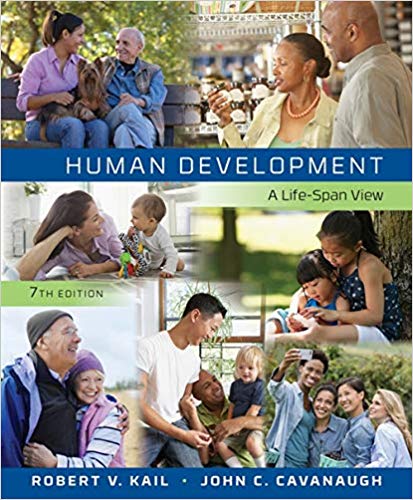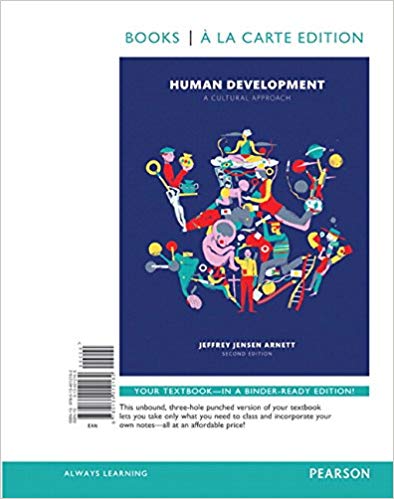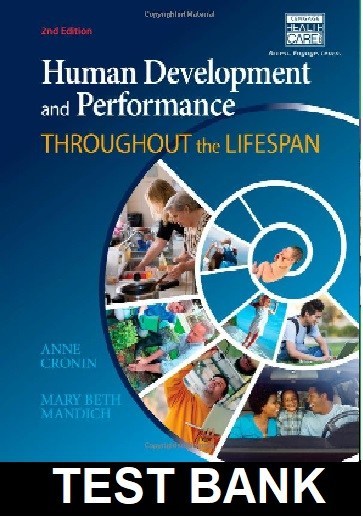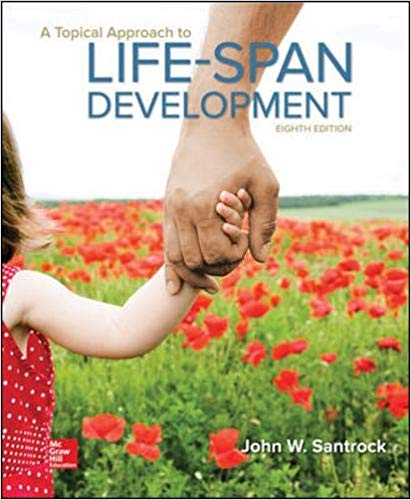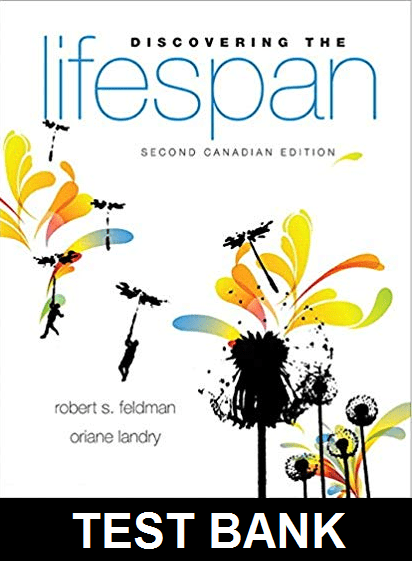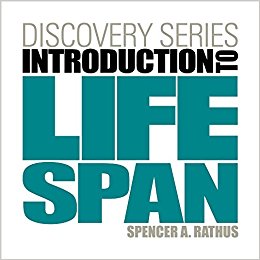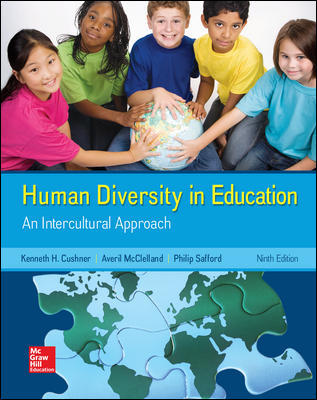Human Development A Life-Span View 7th Edition by Robert V. Kail – Test Bank
ISBN-10: 130511664X, ISBN-13: 9781305116641
1. Who is most likely interested in the study of human development?
|
a. |
Dr. Harvey, who studies the brain cells of infants |
|
b. |
Dr. Hatfield, who studies eating disorders |
|
c. |
Dr. Deal, who studies how political attitudes change with age |
|
d. |
Dr. Hersh, who studies elderly patients with Alzheimer’s disease |
| ANSWER: |
c |
| REFERENCES: |
1.1 Thinking About Development |
| LEARNING OBJECTIVES: |
KAIL.HDEV.16.1.1.1 – What fundamental issues of development have scholars addressed throughout history? |
| KEYWORDS: |
Bloom’s: Apply |
|
2. The nature of the scientific study of human development can best be described as
|
a. |
multidisciplinary. |
|
b. |
focused on groups rather than individuals. |
|
c. |
nontheoretical. |
|
d. |
emphasis on stability over change. |
| ANSWER: |
a |
| REFERENCES: |
1.1 Thinking About Development |
| LEARNING OBJECTIVES: |
KAIL.HDEV.16.1.1.1 – What fundamental issues of development have scholars addressed throughout history? |
| KEYWORDS: |
Bloom’s: Thinking Critically |
|
3. Which question best captures the spirit of most individuals who study human development with a nature/nurture focus?
|
a. |
How do genes and environmental factors interact in the development of memory processes? |
|
b. |
Which human behaviors are determined genetically, and which are determined by environmental factors? |
|
c. |
At what age do environmental factors surpass genetic factors as most important in human development? |
|
d. |
Which genes are responsible for childhood behavior, and which genes are responsible for adult behavior? |
| ANSWER: |
a |
| REFERENCES: |
1.1 Thinking About Development |
| LEARNING OBJECTIVES: |
KAIL.HDEV.16.1.1.1 – What fundamental issues of development have scholars addressed throughout history? |
| KEYWORDS: |
Bloom’s: Thinking Critically |
|
4. Which term does not belong in this group?
|
a. |
Experiential |
|
b. |
Nurture |
|
c. |
Environmental |
|
d. |
Hereditary |
| ANSWER: |
d |
| REFERENCES: |
1.1 Thinking About Development |
| LEARNING OBJECTIVES: |
KAIL.HDEV.16.1.1.1 – What fundamental issues of development have scholars addressed throughout history? |
| KEYWORDS: |
Bloom’s: Thinking Critically |
|
5. Dr. Kim takes a strong nature position with regard to the origins of intellectual disabilities. Therefore, she would most likely hypothesize that her son’s intellectual disability (formally known as mental retardation) is due to
|
a. |
her parenting style. |
|
b. |
his genes. |
|
c. |
his exposure to a toxic chemical prior to birth. |
|
d. |
random chance. |
| ANSWER: |
b |
| REFERENCES: |
1.1 Thinking About Development |
| LEARNING OBJECTIVES: |
KAIL.HDEV.16.1.1.1 – What fundamental issues of development have scholars addressed throughout history? |
| KEYWORDS: |
Bloom’s: Apply |
|

